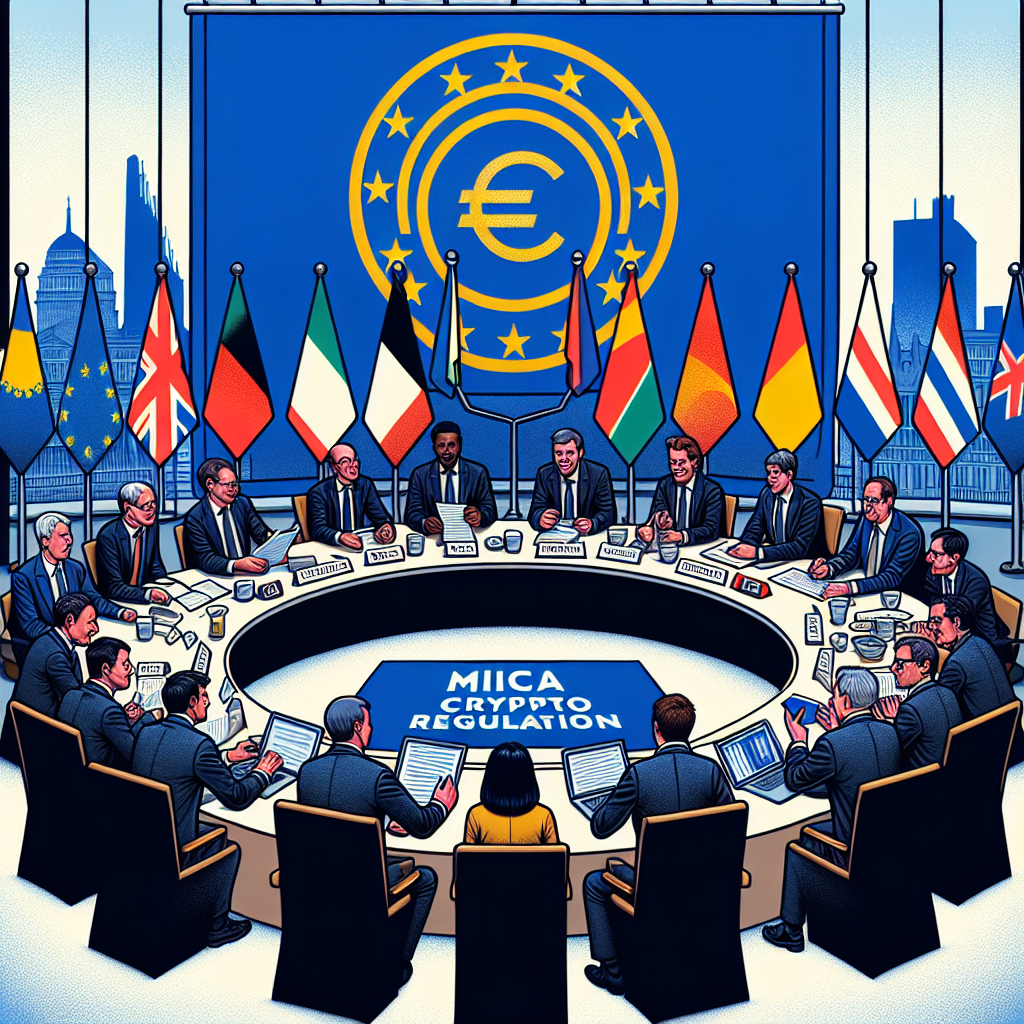Overview of MiCA Crypto Regulation by EU Finance Ministers
The European Union (EU) has taken a significant step towards regulating the cryptocurrency market with the approval of the Markets in Crypto-Assets (MiCA) regulation by EU finance ministers. This move comes as the popularity and adoption of cryptocurrencies continue to grow, raising concerns about investor protection, market integrity, and financial stability. The MiCA regulation aims to address these concerns by establishing a comprehensive framework for the regulation of crypto-assets within the EU.
Under the MiCA regulation, all crypto-assets that are not already covered by existing financial regulations will be subject to a set of common rules across the EU. This includes cryptocurrencies such as Bitcoin and Ethereum, as well as stablecoins and utility tokens. The regulation will apply to both issuers of crypto-assets and service providers operating in the crypto market, such as exchanges and wallet providers.
One of the key objectives of the MiCA regulation is to provide a high level of investor protection. To achieve this, the regulation introduces requirements for issuers of crypto-assets, such as the obligation to provide a whitepaper containing detailed information about the asset and the issuer. This will enable investors to make informed decisions and assess the risks associated with investing in a particular crypto-asset. Additionally, the regulation introduces rules on custody and asset segregation to ensure that investors’ funds are adequately protected.
Another important aspect of the MiCA regulation is the establishment of a regulatory sandbox for innovative crypto-assets. This sandbox will allow issuers of new and innovative crypto-assets to test their products and services in a controlled environment, under the supervision of the relevant authorities. This will encourage innovation in the crypto market while ensuring that consumer protection and market integrity are not compromised.
The MiCA regulation also addresses the issue of market integrity by introducing rules on market abuse and insider trading. These rules will help prevent market manipulation and ensure a level playing field for all participants in the crypto market. Additionally, the regulation introduces requirements for crypto-asset service providers to have robust systems and controls in place to detect and prevent money laundering and terrorist financing.
Furthermore, the MiCA regulation aims to enhance financial stability by introducing prudential requirements for stablecoin issuers. Stablecoins, which are cryptocurrencies pegged to a stable asset such as a fiat currency, have gained popularity in recent years due to their potential for cross-border payments and remittances. However, concerns have been raised about the potential impact of stablecoins on financial stability. The MiCA regulation addresses these concerns by requiring stablecoin issuers to hold sufficient capital and maintain reserves to ensure the stability and liquidity of their stablecoins.
In conclusion, the approval of the MiCA regulation by EU finance ministers marks a significant milestone in the regulation of the cryptocurrency market. The regulation aims to provide a comprehensive framework for the regulation of crypto-assets within the EU, addressing concerns about investor protection, market integrity, and financial stability. By introducing common rules across the EU, the regulation will create a level playing field for all participants in the crypto market and promote innovation while ensuring consumer protection. With the approval of the MiCA regulation, the EU is taking a proactive approach to regulate the rapidly evolving crypto market and position itself as a global leader in this space.




